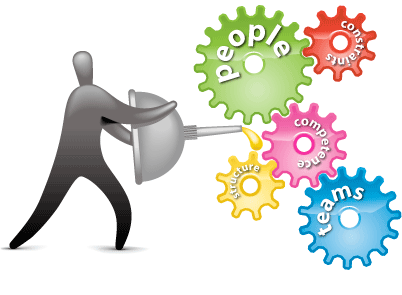
The 2020 Trilogy Years have brought to light the level of challenge that exists in the US educational system. Similar to the need for change that catalyzed the Manifesto for Agile Software Development twenty+ years ago, is it time to pull all the stops out with Agile in Education?
In this panel podcast, co-hosts Andy Cleff and Colleen Johnson chat with Garry Miller, Jeff Burstein, Jessica Cavallaro, Dr. LeDonna Griffin, Roslynn Jackson, and Simon Holzapfel about their journeys as agilists and educators.
We explore ways for educational systems to adapt to bring more joy into the classroom, as well as greater engagement from parents, administrators, teachers, and students. Through flow-based education, students grow to be more independent, confident, and persistent adults equipping them with autonomy and resilience to better address challenges.
Our panelists have a few ideas as well as case studies to share on how they are working to prepare the next generation:
Curious and open to what is possible?
- Join the conversation at: https://www.l-eaf.org/teachers_lounge
Hypotheses for Education and Agility
Teachers/Educators
- We believe that [teachers] have [need for more joy in their work] doing [classroom teaching]
- We will know we have succeeded when [teachers’ job satisfaction rises] and [teachers’ average length of service increases, creating more stable school environments].
- This will improve [# teachers pulling agile methods into their classrooms]
- Student feedback/ Student perception assessment
- Student engagement
- Hiring/keeping teachers
Students
- We believe that [students] when are unblocked by [school in the usual push-based way, where obedience > creative initiative it can unlock their intrinsic motivation & curiosity]
- We will know we have succeeded when [students are inspired to learn more
- as evidenced [by agency/excitement in their agile-friendly classrooms, increased community activism, and engagement in the home/school setting] as self-starters] and
- This will improve [student engagement in the education process as a teacher/learner] [learning outcomes and student engagement]
- Collaboration skills
- Time management
- Student happiness
- 21st-century skills
Parents
- We believe that [agility-minded parents] that have [positive relationships with their kids’ teachers] [might be willing to share a podcast with the teacher if the contents were user-friendly for the teacher and invited the teacher to a lean coffee w. Other teachers using agile in the classroom]
- We will know we have succeeded when [inspired listeners] and [invite their kids’ teachers to Agile Mind’s lean coffee for teachers].
- This will improve [# of educators willing to experiment with agile ways of work in their classroom]
School Administrators
- We believe that [school administrators] have [trouble steering the ship] and [navigating through the fog]
- We will know we have succeeded when [administrators] have [the ability to digest bite-size pieces that lead to a greater vision] [when working in teams]
- This will improve [engagement of board members, and the involvement of teachers during decision making, with parent input]
- Leadership Agility
- Graduation rate
- Test scores
- SAT/ACTs
- Post-graduation
- Student engagement/choice
- Student perception assessment
Curious and Open to What is Possible with Agile in Education?
- Join the conversation at: https://www.l-eaf.org/teachers_lounge
Read More on Agile and Education
Websites
Contact Information
- linkedin.com/in/roslynn-jackson/
- linkedin.com/in/jessicacavallaro/
- linkedin.com/in/dr-ledonna-white-griffin-18067345/
- linkedin.com/in/simon-holzapfel-99081b24/
- linkedin.com/in/jeffburstein/
Additional Agile Education Links
- John Miller: https://agileclassrooms.com/
- https://www.agileineducation.org/
- Willy Wijnandshttps://eduscrum.org/
- A Manifesto for Agile Education: Why is agility in schools only valued in the gym department? https://medium.com/notosh/a-manifesto-for-agile-education-51afdf4a1690
- Agile Schools: How Technology Saves Education (Just Not the Way We Thought it Would) https://www.infoq.com/articles/agile-schools-education/
- https://scrumatschool.nl/wp-content/uploads/2018/11/Manifesto-for-Agile-Education.pdf
- https://kanbanzone.com/2021/4-pillars-of-agile-in-education/
